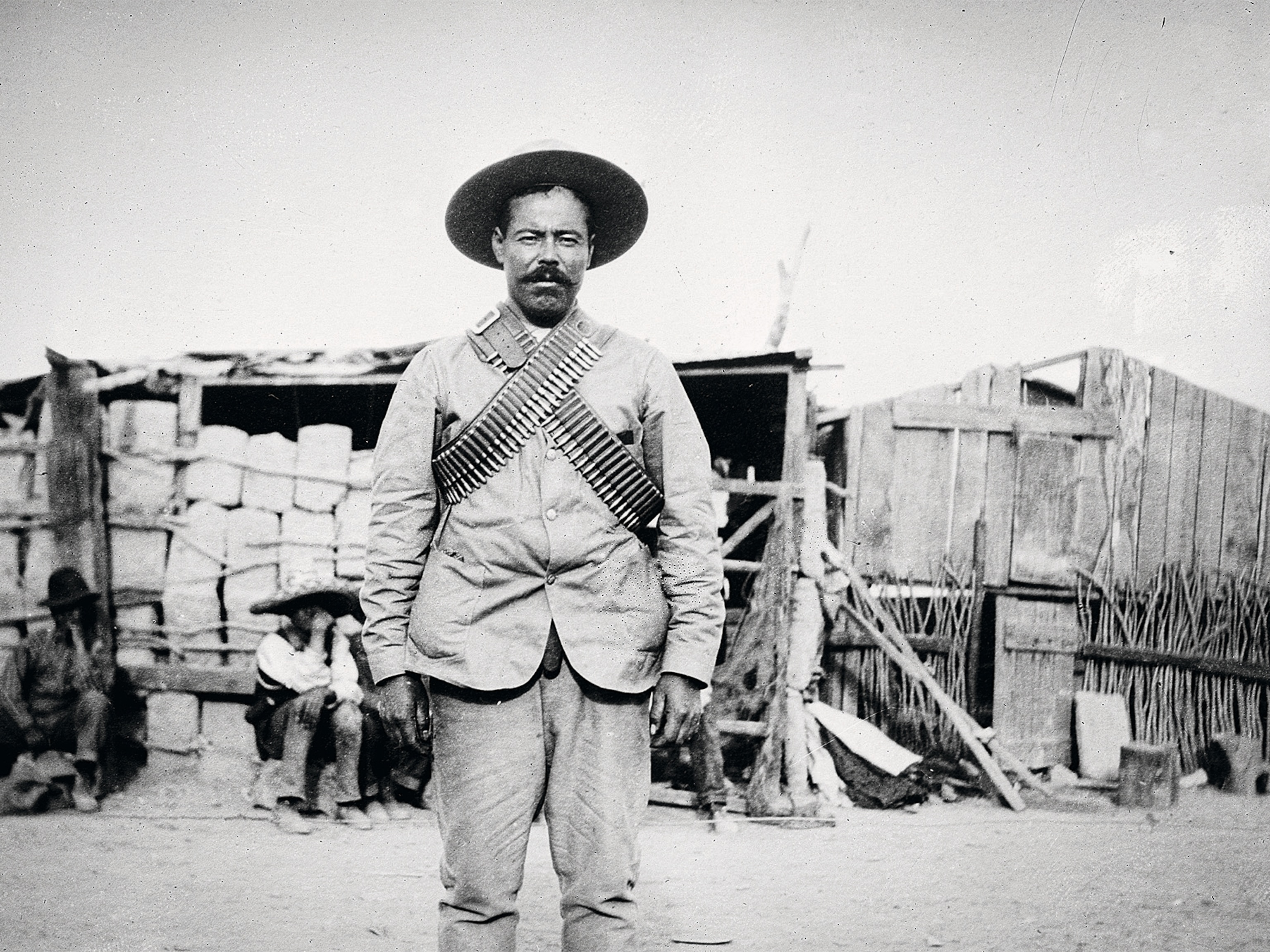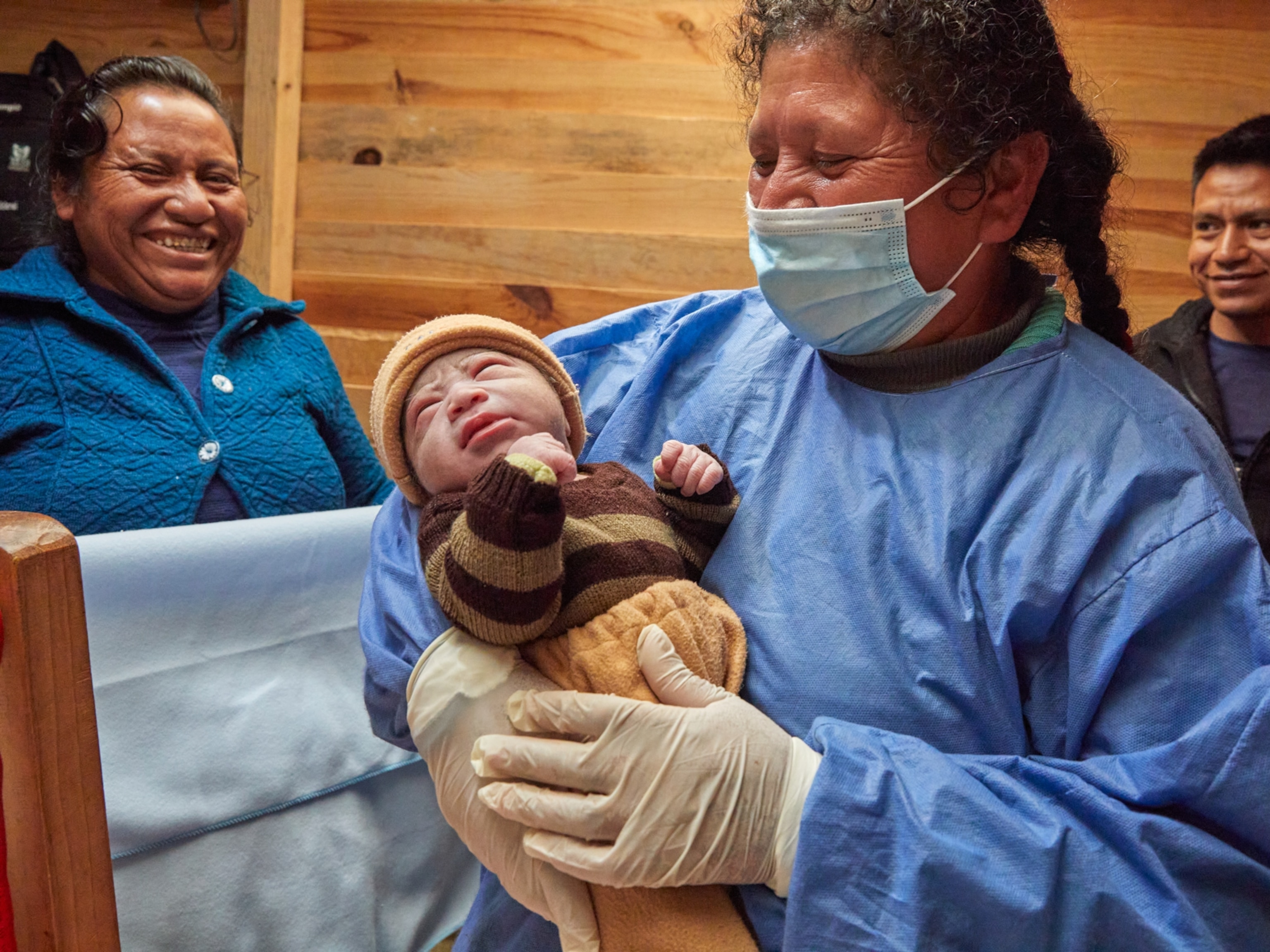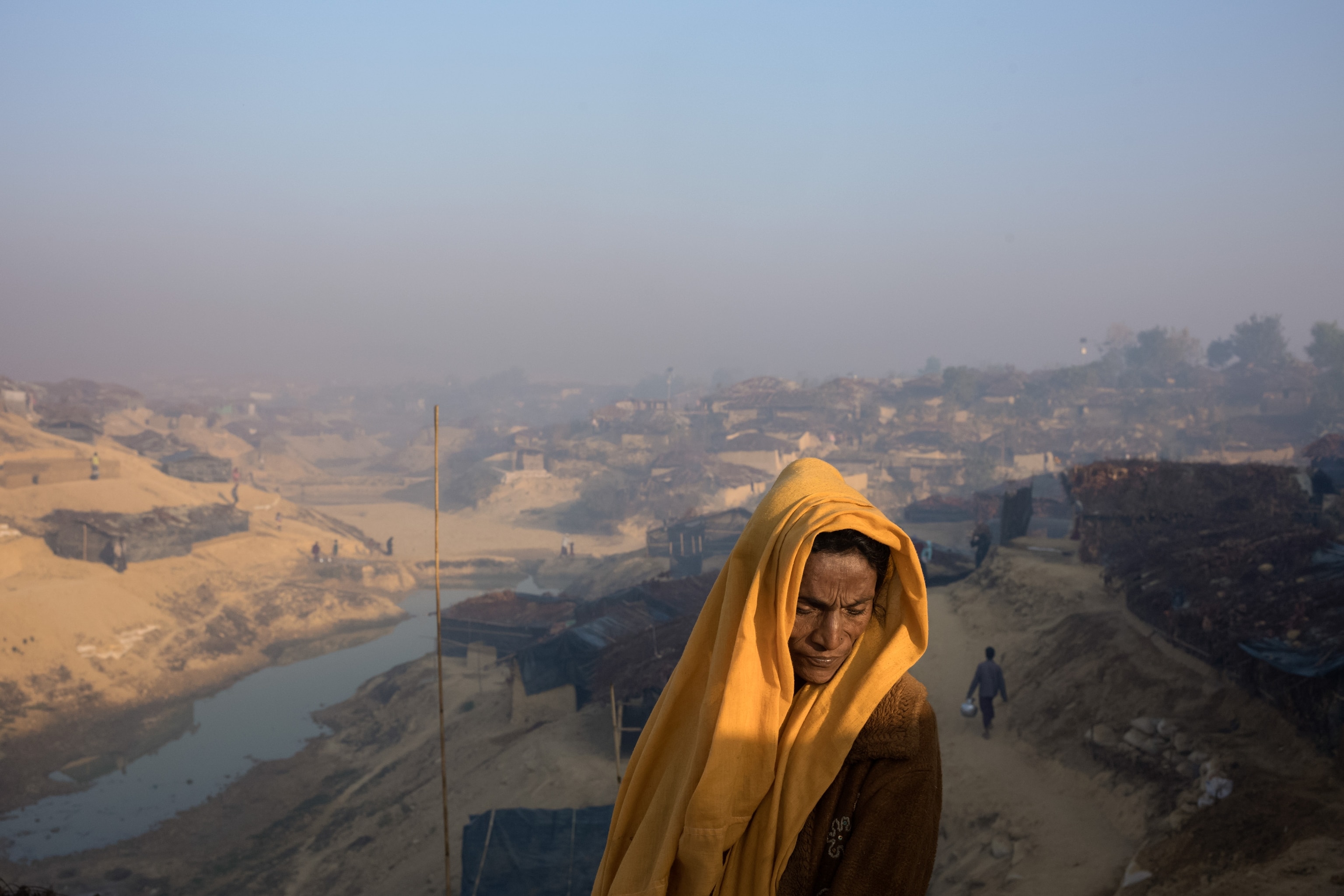
Without a Home, and Without Hope
The Rohingya Muslim minority has fled repression in Myanmar for generations. In neighboring Bangladesh, refugee camps offer asylum, but life there remains bleak.
“Dance!” shouted the army officer, waving a gun at the trembling girl. Afifa, just 14 years old, was corralled in a rice paddy with dozens of girls and women—all members of Myanmar’s Rohingya minority. The soldiers who invaded her village that morning last October said they were looking for militants who had carried out a surprise attack on three border posts, killing nine policemen. The village’s men and boys, fearing for their lives, had dashed into the forests to hide, and the soldiers began terrorizing the women and children.
After enduring an invasive body search, Afifa had watched soldiers drag two young women deep into the rice paddy before they turned their attention to her. “If you don’t dance at once,” the officer said, drawing his hand across his throat, “we will slaughter you.” Choking back tears, Afifa began to sway back and forth. The soldiers clapped rhythmically. A few pulled out mobile phones to shoot videos. The commanding officer slid his arm around Afifa’s waist.
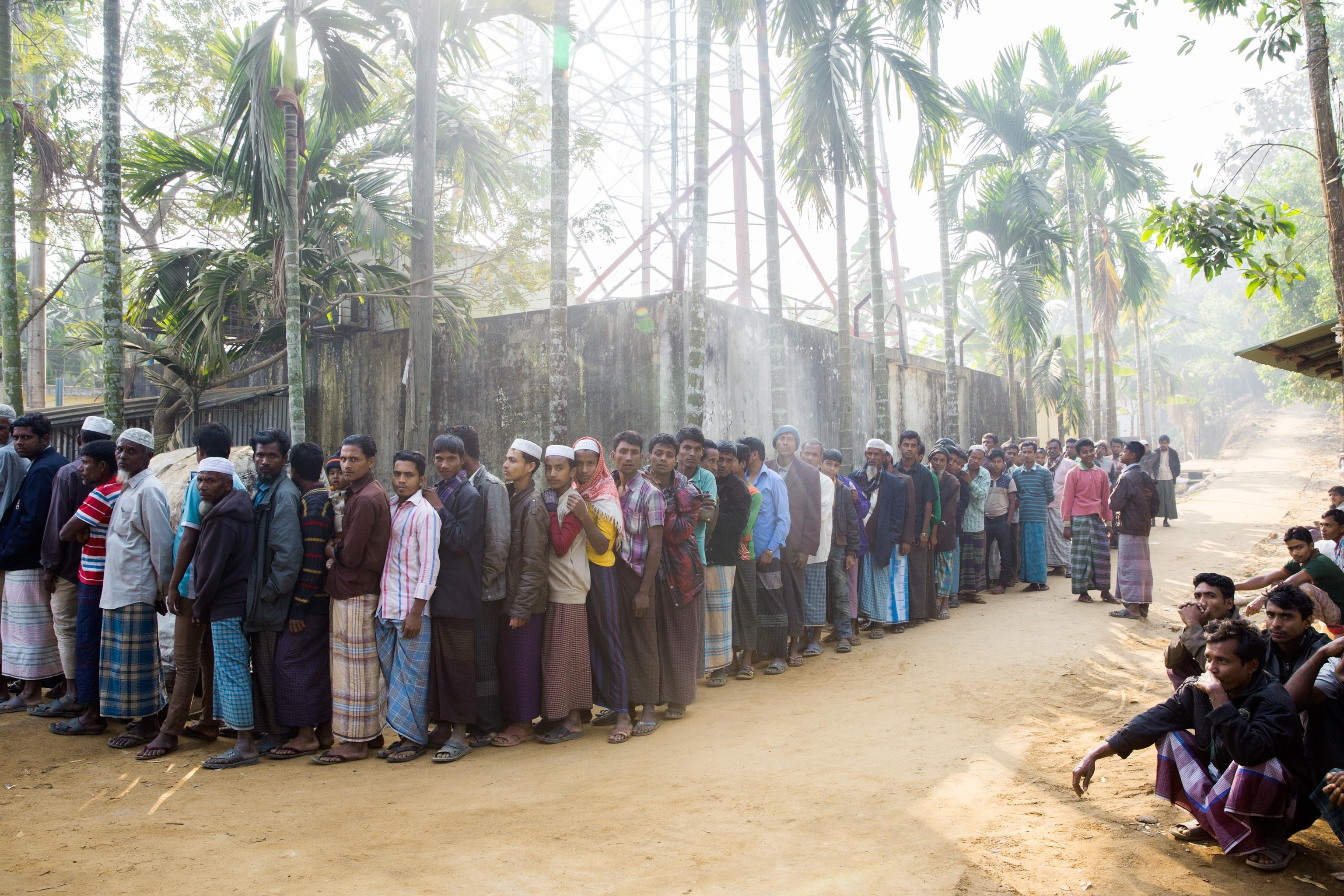
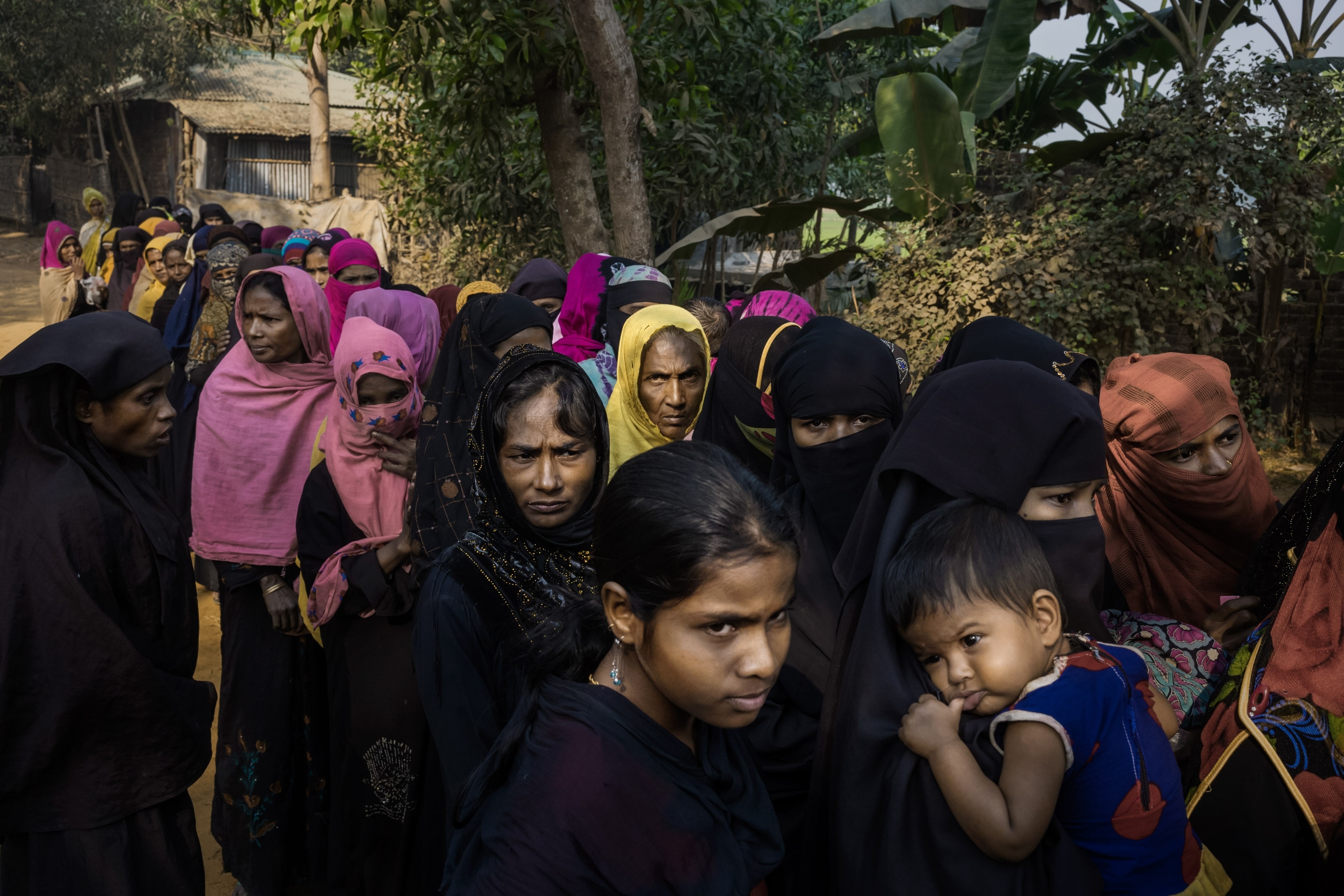
“Now that’s better, isn’t it?” he said, flashing a smile.
The encounter marked only the beginning of the latest wave of violence against the estimated 1.1 million Rohingya who live, precariously, in Myanmar’s western Rakhine state. The United Nations considers the Rohingya one of the world’s most persecuted minorities. Muslims in a nation dominated by Buddhists, the Rohingya claim that they are indigenous to Rakhine, and many are descended from settlers who came in the 19th and early 20th century. Despite their roots, a 1982 law stripped the Rohingya of their citizenship. They are now considered illegal immigrants in Myanmar as well as in neighboring Bangladesh, the country to which as many as half a million have fled.
Five years ago, clashes between Buddhist and Muslim communities left hundreds dead, mostly Rohingya. With their mosques and villages torched, 120,000 Rohingya were forced into makeshift camps inside Myanmar (also known as Burma). This time the assault was unleashed by the Burmese military, the feared Tatmadaw, which ruled over Myanmar for five decades before overseeing a transition that led last year to a quasi-civilian government.
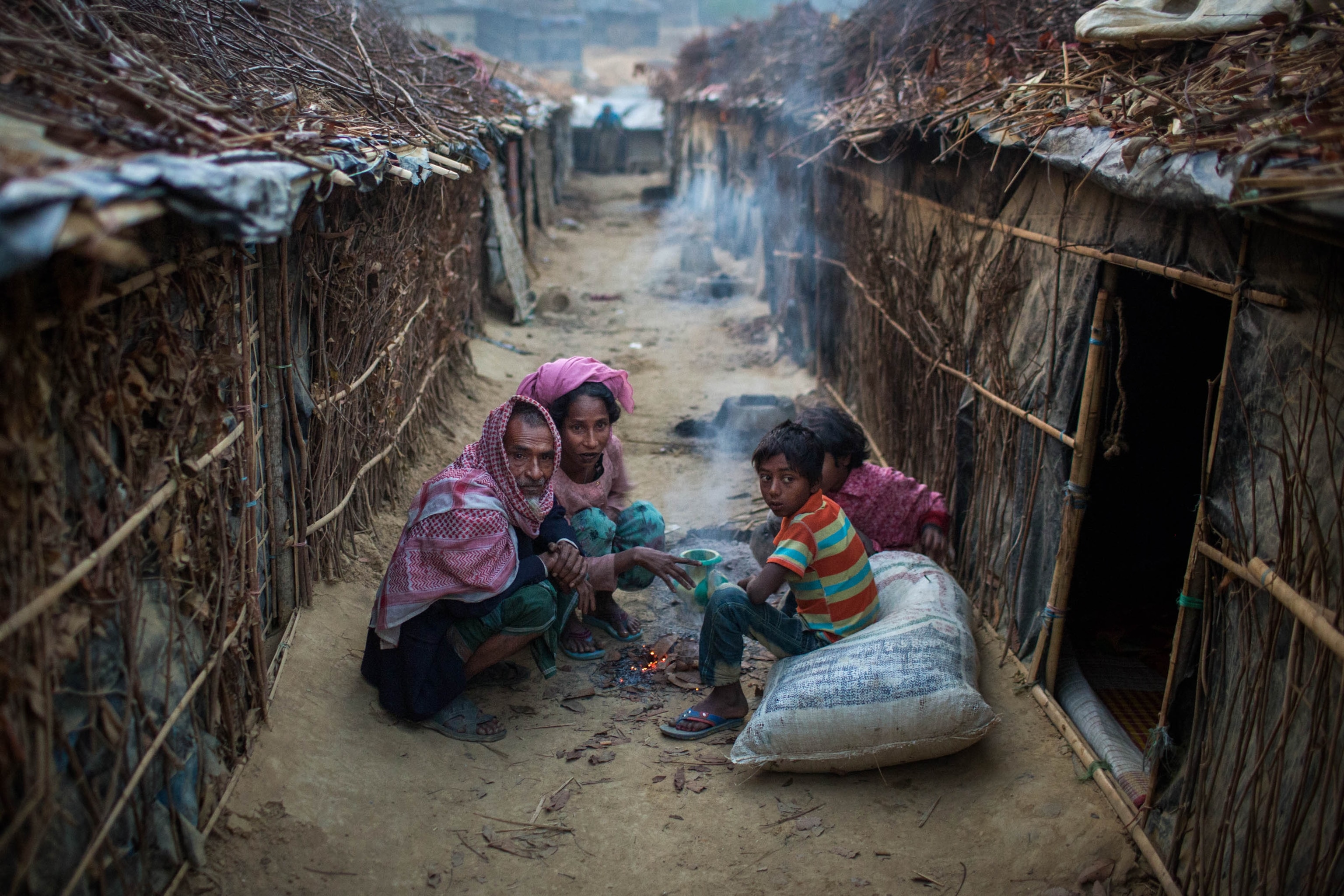
What began ostensibly as a hunt for the culprits behind the border post attacks turned into a four-month assault on the Rohingya population as a whole. According to witnesses interviewed by the UN and international human-rights groups, as well as National Geographic, the army campaign included executions, mass detentions, the razing of villages, and the systematic rape of Rohingya women. Yanghee Lee, the UN’s special rapporteur on human rights in Myanmar, believes it’s “very likely” the army committed crimes against humanity.
The full extent of what happened in northern Rakhine state is not yet known because the government has not allowed independent investigators, journalists, or aid groups unfettered access to the affected areas. Satellite imagery at the time showed Rohingya villages destroyed by fire. Amateur video appeared to show charred bodies of adults and children lying on the ground in the torched villages. Rights groups say hundreds of Rohingya have been killed. One incontrovertible truth is that the army assault triggered the exodus of more than 75,000 Rohingya into overcrowded refugee camps across the border in Bangladesh. Nearly 60 percent are children. (An estimated 20,000 or more Rohingya have been displaced within Myanmar’s borders.)
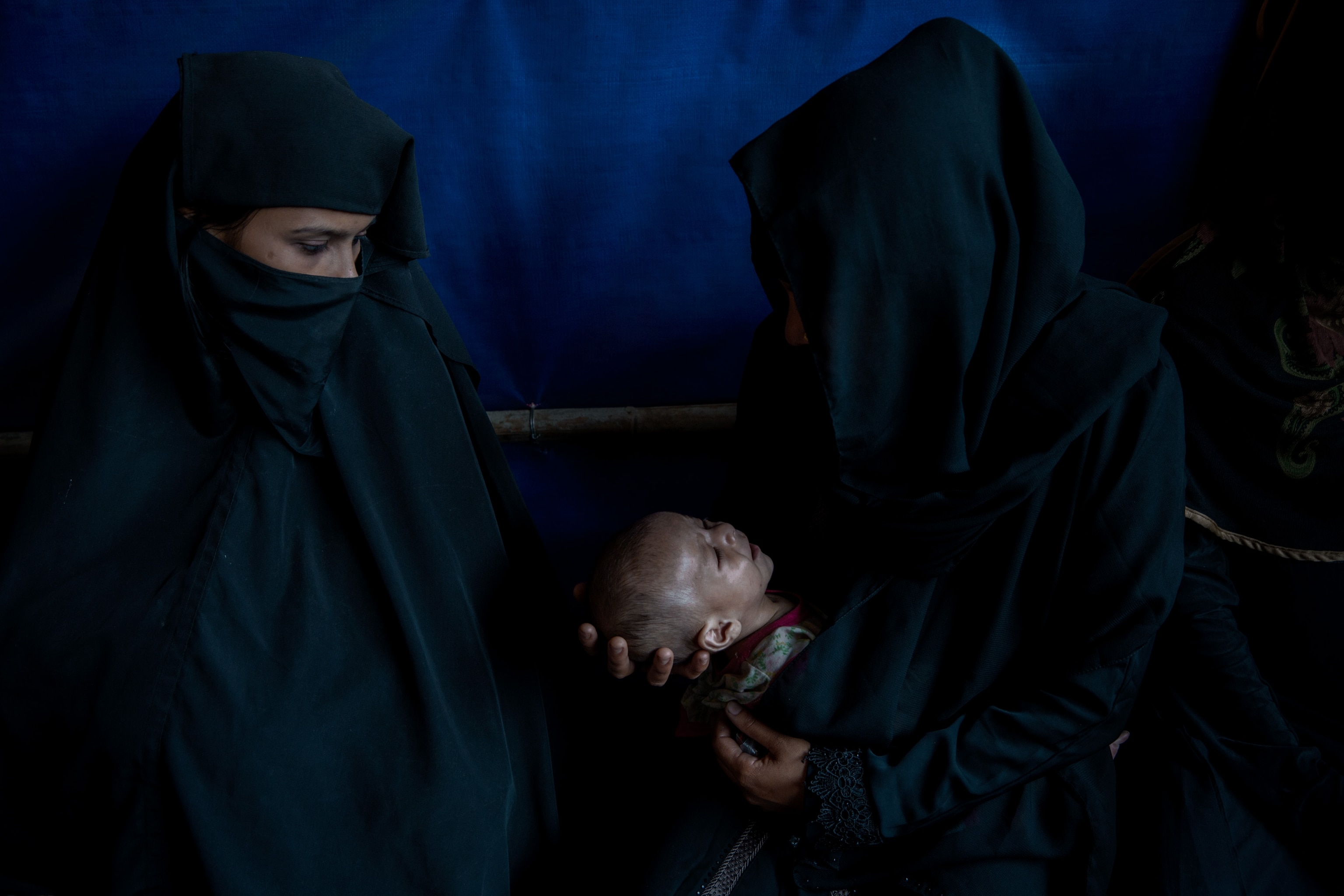
Before the soldiers left Afifa’s village that day, she says they set fire to the harvest-ready rice fields, looted houses, and shot or stole all of the cattle and goats. The devastation and fear compelled Afifa’s parents to split the family into two groups and escape in different directions—to improve their odds of survival. “We didn’t want to abandon our home,” Afifa’s father, Mohammed Islam, told me five months later, when five of the family’s 11 members staggered into Balukhali, a refugee camp in Bangladesh. “But the army has only one aim: to get rid of all Rohingya.”
It wasn't supposed to turn out this way. More than a year ago, Nobel Peace Prize winner Aung San Suu Kyi became Myanmar’s de facto leader, and international human-rights groups—as well as many Rohingya—hoped she would help move Rakhine toward peace and reconciliation. The daughter of Myanmar’s independence hero and martyr, General Aung San, she is celebrated for her fearless resistance to the country’s military dictatorship. After enduring more than 15 years under house arrest, Aung San Suu Kyi led her National League of Democracy to a sweeping electoral victory in 2015. (A clause in the military-drafted constitution prevented her from becoming president, so a loyal underling serves as president while she runs the government as “state counselor.”)
“We had a very big hope that Suu Kyi and democracy would be good for us,” says Moulabi Jaffar, a 40-year-old Islamic cleric and shop owner from a village north of Maungdaw, sitting in his shack in Balukhali camp. “But the violence only got worse. That came as a big surprise.”
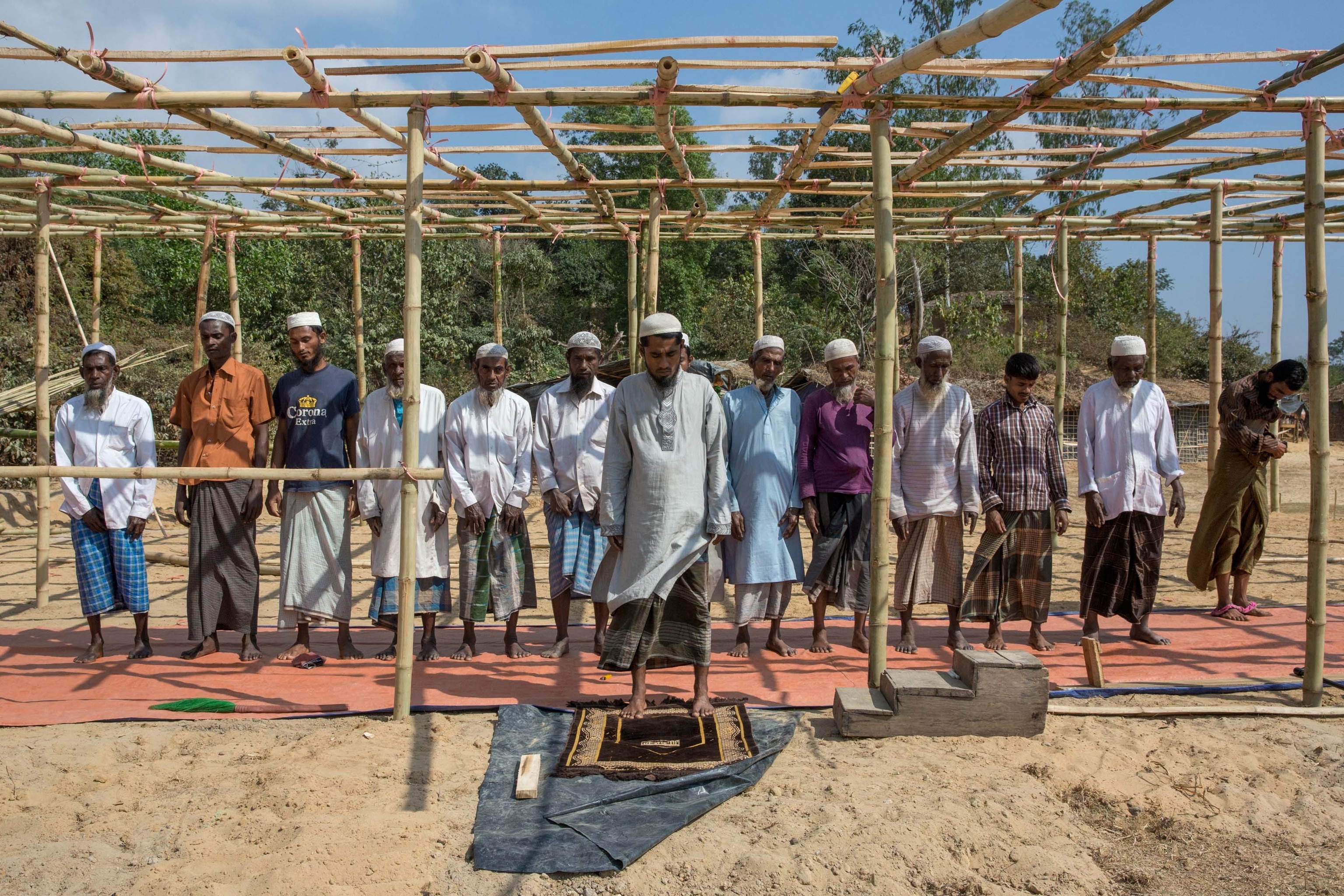
Despite her reputation as a human-rights icon, Aung San Suu Kyi has seemed unwilling or unable to speak about the violence against the Rohingya, much less bring perpetrators to justice. When reports of army atrocities emerged late last year, she broke her silence—not to rein in abusive soldiers but to scold the United Nations and human-rights groups for stoking “bigger fires of resentment” by dwelling on the testimonies of Rohingya who had fled to Bangladesh. It doesn’t help, she said, “if everybody is just concentrating on the negative side of the situation.” Aung San Suu Kyi has yet to visit northern Rakhine. But in a BBC interview in April, she said, “I don’t think there is ethnic cleansing going on.”
Aung San Suu Kyi remains an immensely popular figure in Myanmar, where 90 percent of the population is Buddhist and the military still wields enormous power. But her role in shielding the army from scrutiny in Rakhine has tarnished her global reputation, even prompting a letter from 13 Nobel laureates upbraiding her for failing to protect the rights of the Rohingya. “Like many in the international community, we expected more of Suu Kyi,” says Matthew Smith, co-founder of Fortify Rights, a Bangkok-based human-rights group. “She is operating in a delicate situation politically, but that doesn’t justify silence or wholesale denials in the face of mountains of evidence. The army launched an attack on a civilian population, and nobody has been held accountable.”
Myanmar set up three commissions to look into the turmoil in Rakhine state, but none is independent. The army’s report, released in May, proclaimed its innocence—except for two minor incidents, including one in which a soldier borrowed a motorbike without asking. A member of the main government inquiry dismissed reports of atrocities and contended that Burmese soldiers couldn’t have raped Rohingya women because they are “too dirty.” That commission’s final report, issued in early August, was another blanket denial, contending that “there is no evidence of crimes against humanity or ethnic cleansing.” Aung San Suu Kyi says her government will accept outside guidance only from an international commission chaired by former UN secretary-general Kofi Annan. Its report is also due this month, but its mandate is to make policy recommendations—not to investigate human-rights abuses.
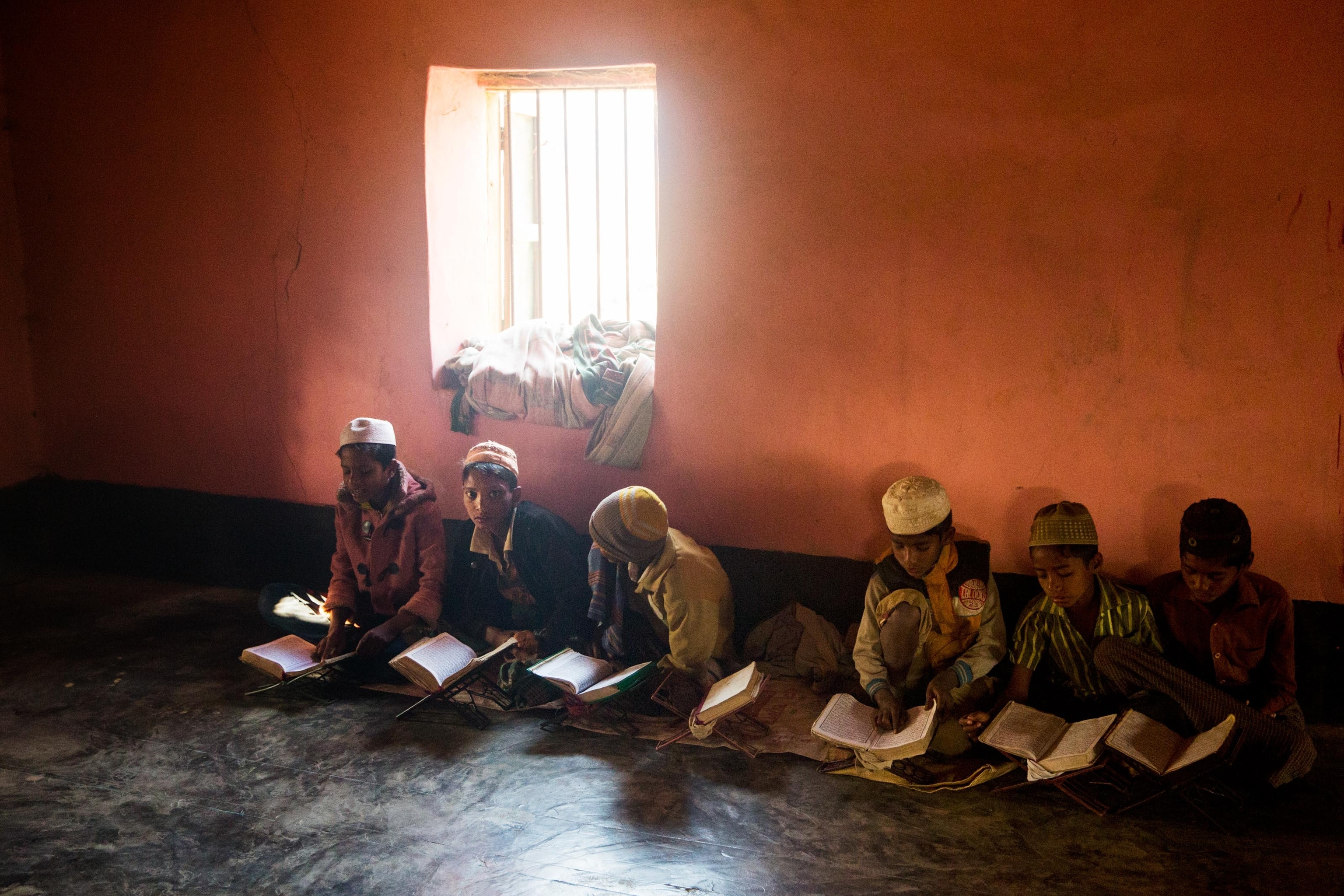
In June, when a newly formed UN fact-finding mission sought to investigate human-rights violations in Myanmar, including Rakhine, Aung San Suu Kyi’s government refused to grant visas to the team members. “We don’t accept it,” she said, arguing that the mission could exacerbate divisions between Buddhists and Muslims. When Lee, the UN special rapporteur, returned to Myanmar in July, she and Aung San Suu Kyi shared a warm embrace—before Lee excoriated the government for blocking her access and intimidating witnesses, the same tactics used by the military junta. “In previous times, human rights defenders, journalists, and civilians were followed, monitored, and surveyed, and questioned—that’s still going on."
Afia, her father, and siblings spent five months on the run inside Myanmar, sticking mostly to the forests to avoid the military, often going days without food. On their first attempt to cross the Naf River, which separates Myanmar and Bangladesh, a Burmese patrol boat opened fire, capsizing their boat and killing several refugees. It would be three months before they risked the crossing again.
I met Afifa in March on the day that half of her family finally reached Balukhali camp, where more than 11,000 new arrivals have turned the forested hills into a dusty hive of bamboo huts and black tarpaulins. Afifa wore the same soiled brown shirt she wore the day she danced for the soldiers five months before. “It’s all I have,” she says. Another family from their home village of Maung Hnama offered food to eat and a safe place to sleep, but Islam wept quietly. His wife and their five other children were still in hiding in Myanmar.
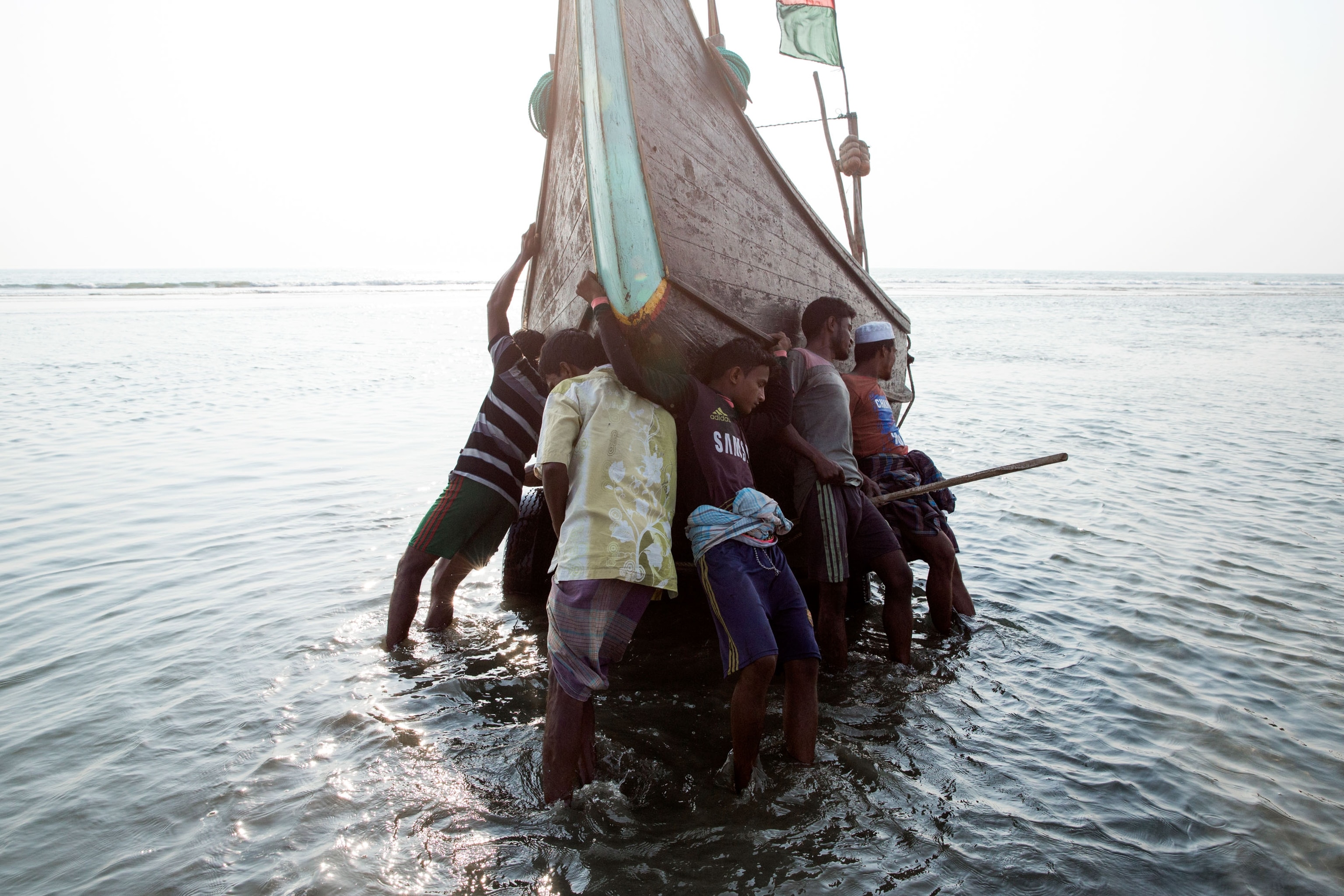
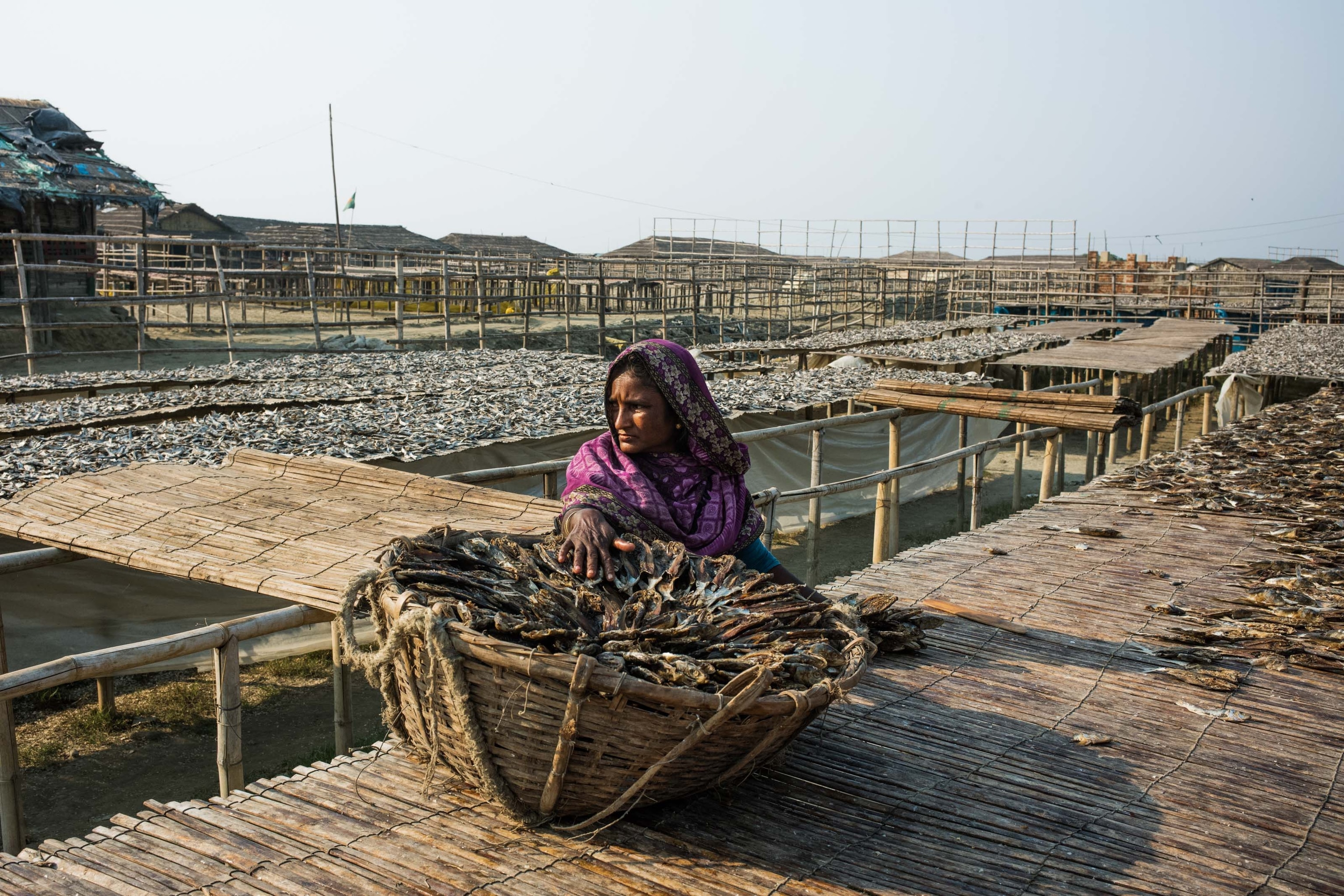
The refugee camps that line Bangladesh’s border are a short drive from the Bangladeshi resort of Cox’s Bazar. Tourists there cavort on the wide beach, taking grinning selfies in the surf, while a few miles away, hundreds of thousands of refugees marinate in grief and neglect. In Kutupalong, a sprawling camp with some 30,000 Rohingya refugees, the wood and bamboo dwellings radiate from the center like rings on a tree, each layer marking a wave of violence the Rohingya have fled.
Rozina Akhtar, 22, has lived here since she was seven years old. With no real hope of leaving—“we have no passports, no ID cards, so what can we do?”—she tries to help new arrivals adjust to their lives as refugees. “We can’t reject them,” she says. “These are our sisters and brothers.” Akhtar helps newcomers get medical care, plastic tarpaulins, and food rations, but what they really need are jobs. Men can occasionally get day jobs, fishing, harvesting rice, or laboring in the salt flats for a dollar or two a day, but many of the women beg for money along the road outside the camp.
Under a sprawling fig tree in Kutupalong, new arrivals gather to talk about the atrocities they endured in Myanmar. Nur Ayesha, 40, pulls back her headscarf to reveal bleached-white burn scars across her forehead; soldiers set fire to her house while she was still inside, she says. Residents of Kyet Yoe Pyin say the Burmese soldiers who firebombed their houses also gunned down six women and a man who had stayed behind to attend the birth of a baby—the mother included.
Minara, an 18-year-old in a black burqa, speaks about her missing family members before revealing that Burmese soldiers gang-raped her and several other young women in her village. Her voice barely rises above a whisper. As we talk, Minara, who, like many victims, didn’t choose to reveal her last name, bites the edge of her sleeve, pulling it over her face. By the end, only her eyes, darting back and forth, are visible. “We’re too scared to go back,” she says.
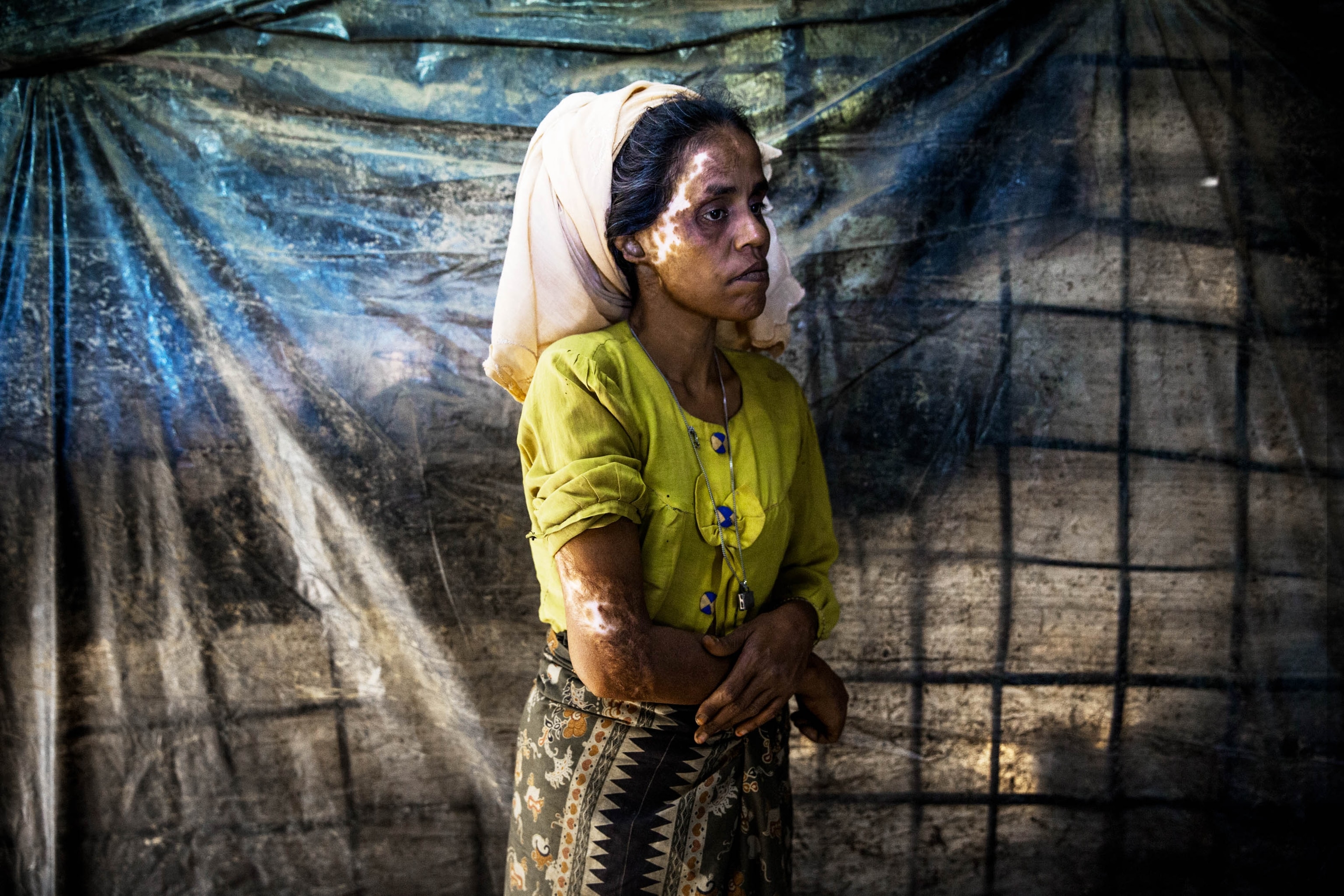
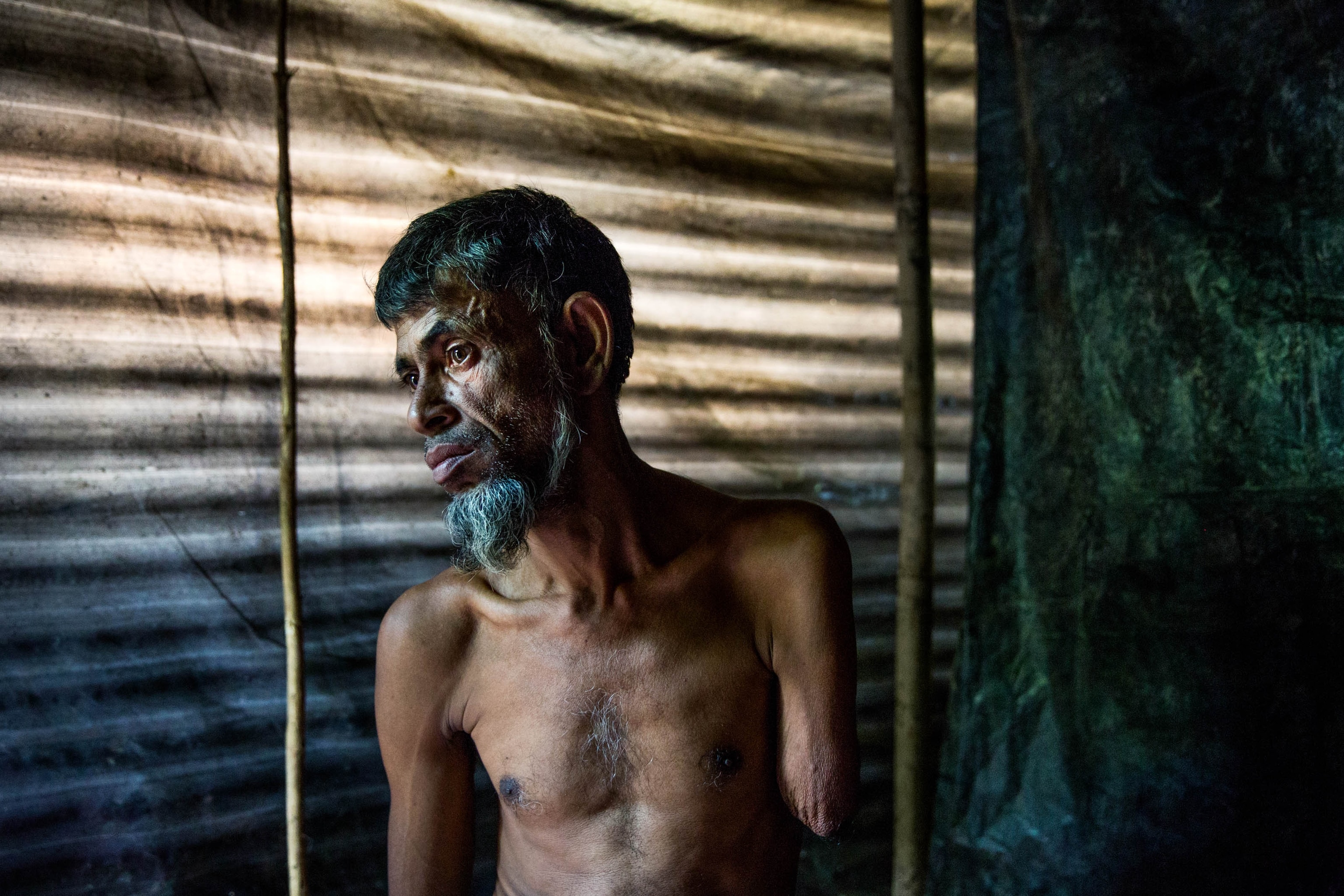
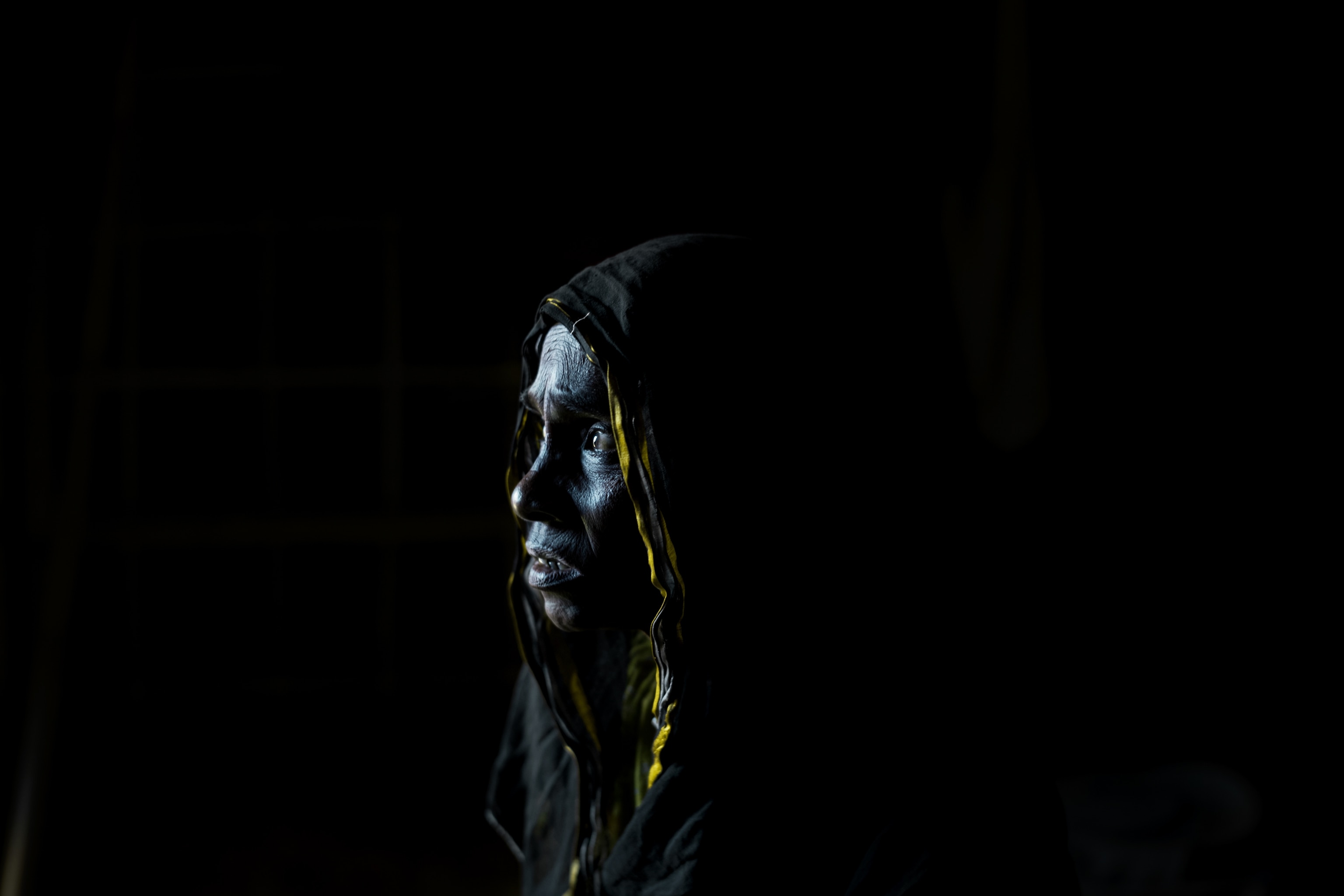
On a hill back in Balukhali camp, I meet a 14-year-old boy, Ajim Allah, getting his hair combed by a friend. Ajim shows me his shriveled left arm, shattered, he says, by a police bullet when he emerged from a madrassa last October; three of his friends died of gunshot wounds that night, he says. In a hut nearby, Yasmin, 27, recounts how soldiers burst into her home in Ngan Chaung village and took turns raping her at knifepoint in front of her five-year-old daughter. “When my daughter screamed, they pointed guns at her and told her they’d kill her if she made any more noise,” she says. The worst moment came after the soldiers left. Yasmin says she went out to look for her eight-year-old son, who had fled when the soldiers came into the village. She found him lying in a rice paddy, a bullet hole in his back.
The Rohingya are caught between two countries—and welcome in neither. More than 500,000 Rohingya now live in Bangladesh. Only 32,000 are officially registered, however, and no new Rohingya refugees have been registered since 1992—an apparent attempt to dissuade more Rohingya from seeking refuge in Bangladesh. That strategy hasn’t worked, but it means that there are close to half a million undocumented Rohingya refugees in Bangladesh with no right or access to employment, education, or basic health care.
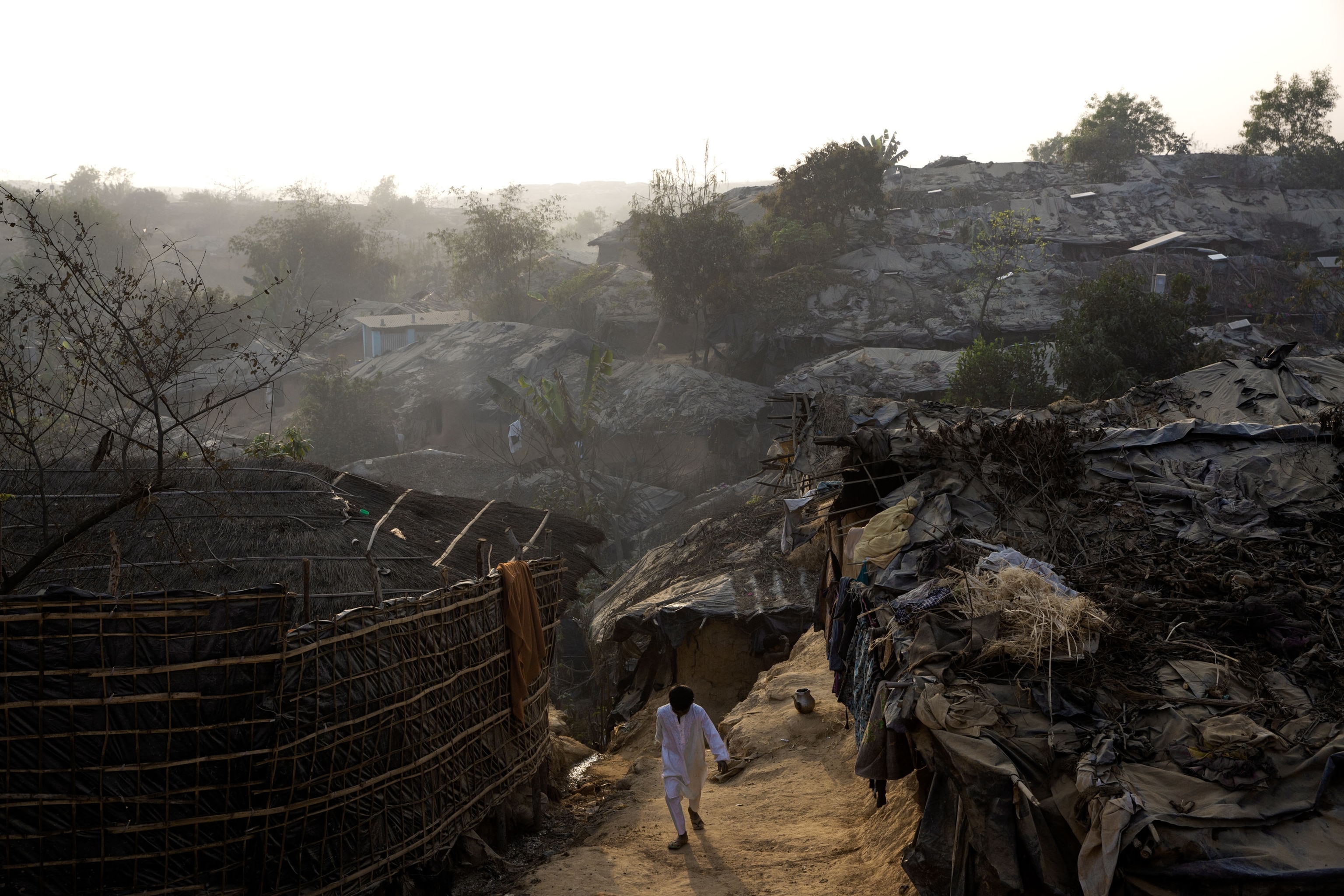
Bangladesh, already poor and overpopulated, shows no enthusiasm for hosting the Rohingya. Conditions in the camps are miserable, but the government has declined many offers of humanitarian aid. It has even floated a plan to move the refugees to a remote island in the Bay of Bengal. The radical proposal seemed designed to keep Rohingya away from the tourist hub of Cox’s Bazar—and to push refugees to return to Myanmar. Many Rohingya, however, are too traumatized to go back to Rakhine, an area historically known as Arakan. One rape victim I spoke to recalled the chilling words of her army attacker: “He kept saying, ‘This kind of torture will continue until you leave the country.’”
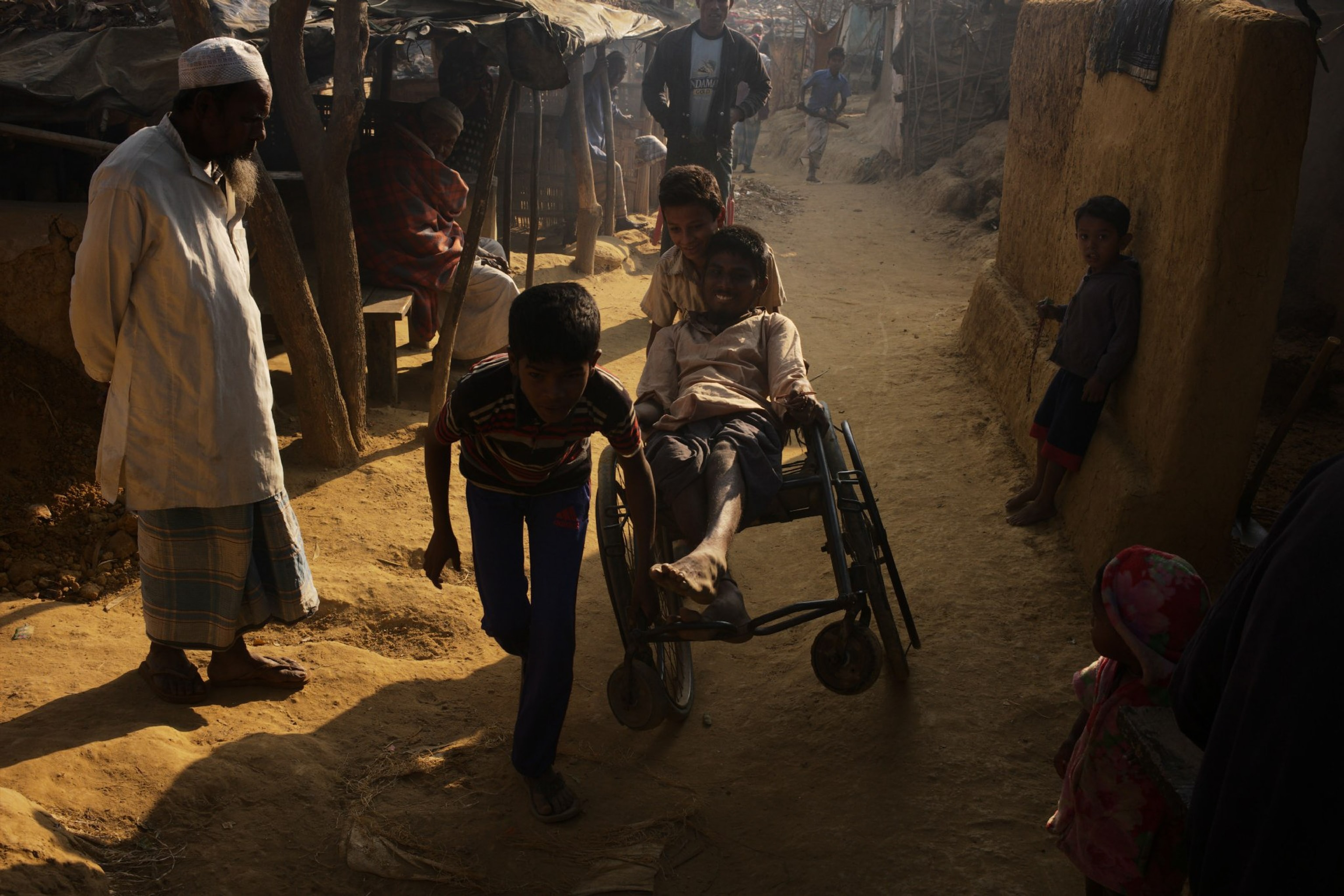
A few years ago, many Rohingya men, including Yasmin’s husband, risked a perilous sea journey to seek construction work in Malaysia or Indonesia. With no citizenship and no passport, travel had to be undertaken illegally. Smugglers packed the refugees onto unregistered ships and cycled them through secret jungle camps, beating or starving to death the ones whose families didn't pay exorbitant smuggling fees. A crackdown on human trafficking in Southeast Asia has closed off that route, leaving a lot of Rohingya men languishing in the refugee camps without any way to make a living. The mixture of despair and marginalization, experts warn, is a recipe for radicalization. Many refugees seek solace in religious faith. In the camps, clusters of young men armed with holy Korans go door to door, urging refugees to pray more devoutly. Out of sight, locals say, is something more ominous: A newly formed militant group, the Arakan Rohingya Salvation Army, is reportedly trying to recruit refugees to join a nascent insurgency against the Burmese army and its local government collaborators.
The last time I saw Afifa, she was sweeping a rectangular patch of dirt on a hill near the refugee camp’s edge—the site of the family’s new shelter. Her father had borrowed $30 from a fellow refugee to buy a horse-cart full of bamboo poles and strips, and he’d already erected the thickest poles at the corners. Islam, a former Arabic teacher, was dressed in a white skullcap and a clean cream-colored tunic, getting ready to attend midday Friday prayers—the jumu’ah—for the first time since he left his village five months before.
Just down the sandy path from their plot, barefoot men in sarongs scrambled to secure the bamboo scaffolding of Balukhali’s new mosque. It would be another week before the structure was finished, with palm fronds as the roof, but the muezzin sounded the call to prayer and dozens of bearded men in white caps gravitated to a small carpet in the center of the mosque. Islam found a spot in the first row and bowed in front of the imam, who stood on a red plastic stool. Later, as Islam walked back from the mosque, he smiled: “I feel better now.”
The misery, however, has continued. In late May, a cyclone ripped through southern Bangladesh, destroying the family’s shelter and thousands of others in the camps. Nobody died in Balukhali, and Afifa’s mother and other siblings have since made it to Bangladesh, easing the girl’s anxiety. Still, food remains scarce, the monsoon rains continue, and there are troubling reports of renewed violence in Rakhine from both sides—military operations by the Burmese army and occasional attacks by Rohingya militants. In this predicament, it’s unclear when, or if, Afifa and her family will ever have a place to call home.
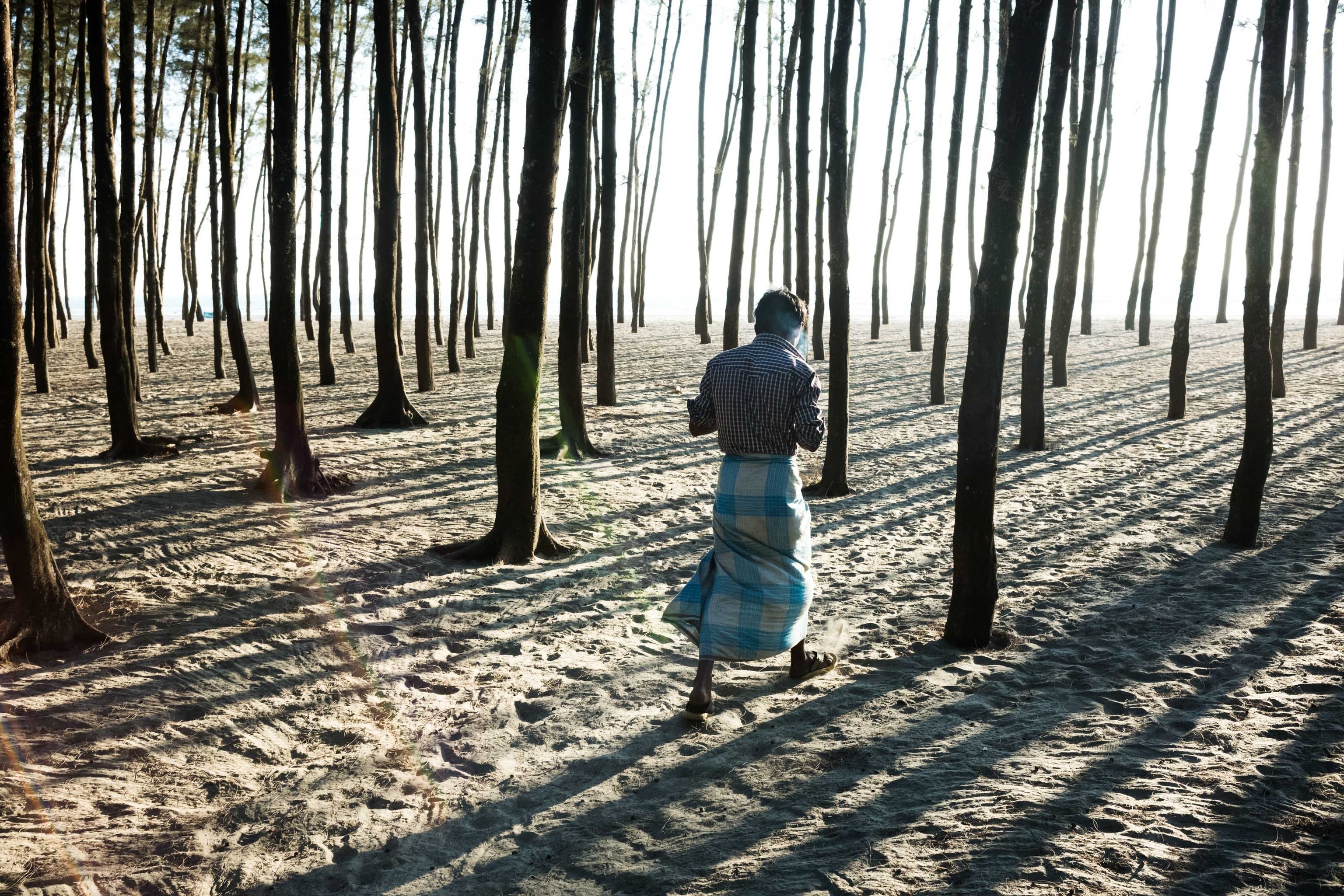
As one neighbor lamented: “Bad days for us never end.”




